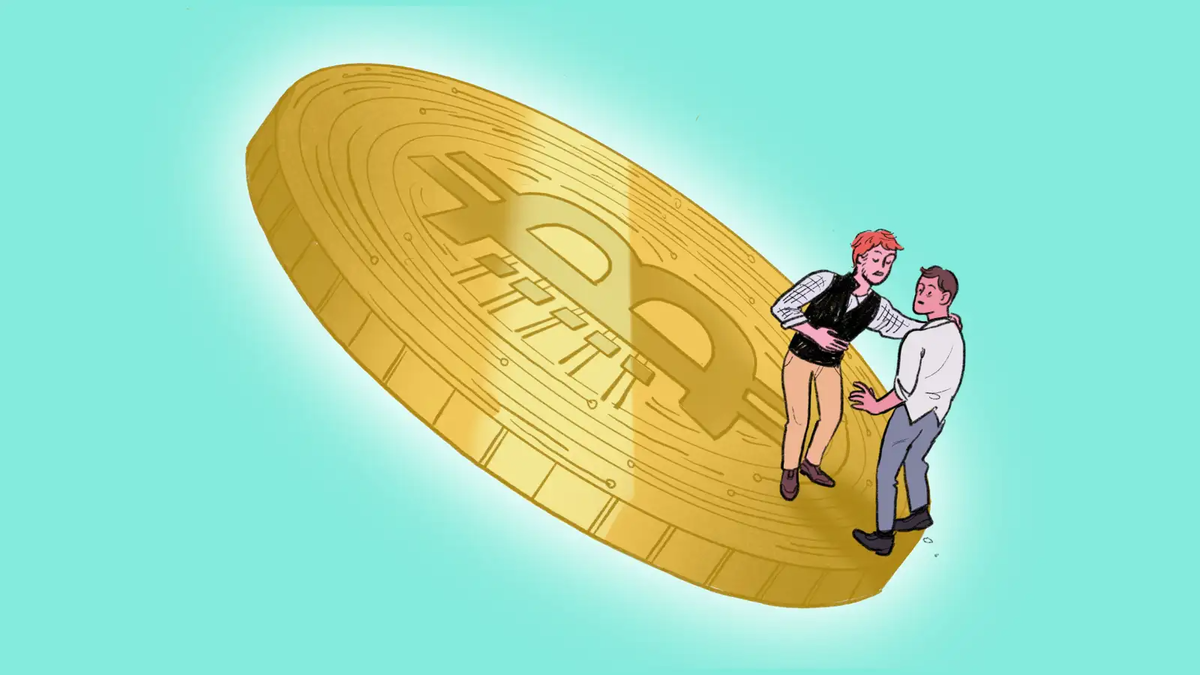What to Say to Someone Pushing Crypto on You
The tail end of 2022 and beginning of 2023 have brought with them a slew of negative crypto news, from industry layoffs to fraud charges against one of the industry’s former gurus. Once you’ve digested the bad news (and...

The tail end of 2022 and beginning of 2023 have brought with them a slew of negative crypto news, from industry layoffs to fraud charges against one of the industry’s former gurus. Once you’ve digested the bad news (and brushed up on the basics of all things cryptocurrency), you might find yourself feeling resolved in your skepticism about investing in volatile digital assets that aren’t regulated nor backed by central banks.
Even if you’re confident that you personally won’t be buying Bitcoin any time soon, you might find yourself trapped in a conversation with someone who insists the only reason you’re skeptical of crypto is is because you don’t understand it. That’s why we’ve compiled a brief list of the primary anti-crypto talking points, so that you can armed and ready to escape a pro-crypto debate.
Here’s how to sound like you have just enough expertise to shut down a conversation with someone trying to push crypto at you.
“It’s simply too great a risk for me.”
The easiest thing you can do to shut down a conversation quickly is frame crypto as too risky for you personally. If pressed, you can go into a bit more detail:
So-called decentralization. Many are drawn to the decentralization of crypto, since in theory, they market is immune to government interference or manipulation. You can argue that the reality is not so simple. For example, as Investopedia reports, ownership is highly concentrated: Just 100 addresses hold roughly 12% of circulating bitcoin and total value, which would give them unusual influence over the total market.Lack of regulation. The most obvious downside to decentralization is that crypto is not supported by a banking system. Right now, if the company managing your crypto holding fails, you probably won’t have any means to get your money back—a sad fate recently experienced by many who invested with the cypto exchange FTX (a target of the aforementioned federal investigation). By some estimates, about one-fifth of all bitcoins are now inaccessible due to lost passwords or incorrect sending addresses.Potential for fraud and theft. The two points above make crypto a prime opportunity for scammers. If someone manages to get into your crypto wallet, you have little to no recourse.“Crypto is too difficult to value.”
Compared to valuing stocks and other assets, crypto doesn’t have a long track record you can use to form an opinion of its worth. The history of crypto is a short one, and in that time, crypto prices have proven volatile. This time last year, Bitcoin saw its value drop from $69,000 to about $33,000 in a matter of days—and in 2023, it’s sitting around $23,000 (which is admittedly a good deal better than the the mid-$16,000s in December). While these value drops mirror overall uncertainty in the economy, crypto was hit harder than the stock market to a significant degree—a 60% fall, versus 20% for the overall stock market (even if some individual stocks experienced even greater volatility). To put it simply, many consider crypto to be a speculative bubble that will truly burst eventually. Even if it doesn’t collapse tomorrow, crypto is not stable enough to risk money you can’t afford to lose.
“I can’t justify how bad crypto is for the environment.”
Another major argument against crypto: the climate impact. You’ve probably heard that Bitcoin alone consumes as much electricity as the Netherlands. Combined with the thousands of other cryptocurrencies, the toll on the planet is only worsening.
Likely the person pushing crypto at you doesn’t care about the environmental toll or has an argument to justify it. In this case, perhaps you two can start debating climate change instead. That will probably go well.
The bottom line
Ultimately, a defining feature of the current state of cryptocurrencies is that they simply aren’t mainstream yet. You’re not crazy for erring on the side of caution with a relatively new, highly speculative investment. If someone in your life insists on arguing for crypto with you, stay firm in your resolve. Tell them that you understand the risks of crypto and are choosing not to accept them.
Note that the the points above don’t go deeply in depth, since your goal is to avoid a heated debate, not to ignite one. For a more thorough critique, check out this lecture from technologist David “DSHR” Rosenthal, presented at Stanford in December 2021 and adapted from a talk he gave at an investor conference, from which this article draws from.

 Astrong
Astrong 































